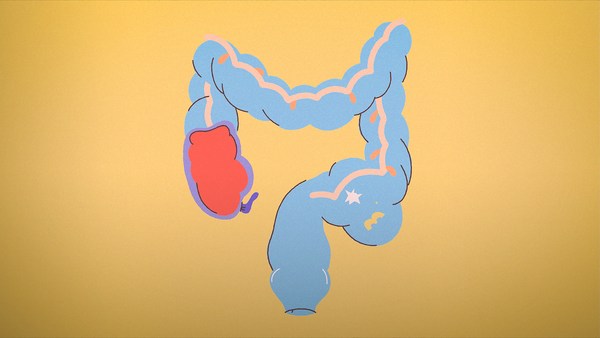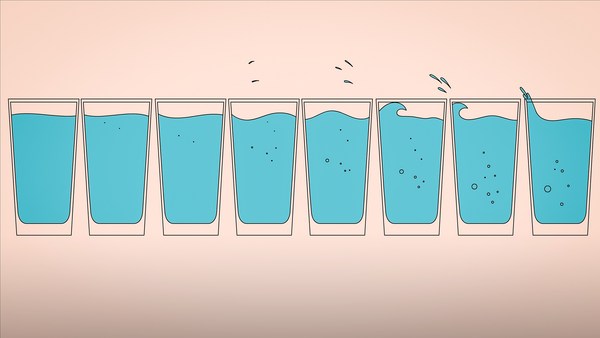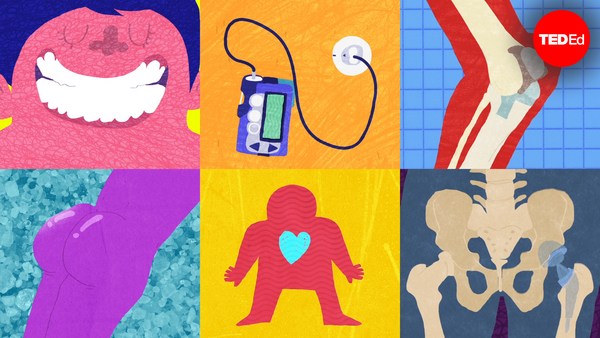Turmeric ginger shots, elderberry syrup, vitamin C tablets. No one likes to be sick, so it’s 100 percent understandable why we’re all intrigued by products that promise to boost our immune system.
(Music)
[Body Stuff with Dr. Jen Gunter]
The problem is that we often think about the immune system in the wrong way. We think of it like a muscle that we can strengthen by feeding it lots of antioxidants and supplements. But that's just not how the immune system works. While the immune system can be suppressed and can be less effective -- for example, in people receiving chemotherapy -- the reverse, strengthening the system overall, just doesn't happen.
Our immune system is what protects us from the bacteria, viruses, fungi and toxins we encounter on a constant basis. It also plays an integral part in wound healing. It’s an elegant network of cells, tissues and organs, all working together.
You can think of the immune system in two broad terms, innate immunity and adaptive immunity. Innate immunity means nonspecific defense mechanisms, and this is our first line of protection. It helps fight off pathogens before they cause a problem. It's like a bouncer at the door of a club. The innate immunity keeps invaders out or neutralizes them shortly after entry so they don't start a fight inside. It can only recognize self, meaning what's allowed in the club, and nonself, meaning what's not allowed inside. Think the physical barriers of our skin, the hairs in our nose, the eyelashes that blink out dirt, even vaginal discharge that prevents infections.
Now if a pathogen does manage to get past the first line of defense, we have another layer of protection, the adaptive immune system, which is more complex and targeted than our bouncer. The adaptive immune system responds to antigens. Antigens are unique proteins on the surface of pathogens, which helps identify what kind of pathogen it is. Kind of like a name tag. Your immune system is constantly reading name tags, and when one is recognized as being on the no-entry list, the adaptive immune system creates special immune cells to attack, which are specialized white blood cells called lymphocytes.
Here's what's really amazing: our immune system remembers this process. So the next time we're exposed to that same pathogen, our immune system recognizes it and remembers how to respond. While we're not sure how many different antigens we can recognize, some scientists think that we produce over a billion antibodies. But the important thing to remember is that our immune system has many different parts playing many different roles. That's what makes this concept of "boosting" so problematic.
When people say "boost the immune system," what do they even mean? Do they mean boost the histamine that's released when exposed to poison ivy? Well, that would you itch a lot more. Do they mean supercharge your T and B cells? Might that lead your body to attack its own cells, as we see with autoimmune conditions? Instead of thinking of a muscle that you can strengthen with one simple exercise, a better analogy may be a garden.
Your immune system has many components, just like a garden has many kinds of plants. Each plant needs just the right amount of sun, shade and water. Too much sun might help one plant but destroys another. Increasing any single element can throw off the balance of the ecosystem overall. If you're getting all the nutrients you need from a healthy, balanced diet, taking more of a single vitamin won't help your immune system function any better overall. For some vitamins, if you take in more than you need, your body will just get rid of the excess as waste. Vitamin supplements are only needed if you have a true real deficiency. In fact, some studies tell us that vitamins and supplements, when they're not medically needed, may have negative effects. Things can go wrong with our immune system for sure, like allergies or autoimmune conditions and failure to catch abnormal cells. But the reasons for each of these things are complex and often not fully understood. And they certainly won't be solved by some immune-boosting miracle pill.
There is however, one thing that has been shown again and again to be incredible for your immune system. Vaccines. Vaccines are truly genius. They contain a weakened or inactive part of a pathogen, like the flu, that includes its antigen name tag. They trigger the body into making antibodies without needing to get sick from an illness first. Instead of boosting the immune system overall, they give the system exactly what it needs to respond to a specific pathogen quickly and aggressively. So get your immunizations and get your flu shot every year. Eat a healthy, balanced diet. If you want a healthy immune system, don't smoke and try to get enough sleep. And otherwise, just let your immune system do its thing.





